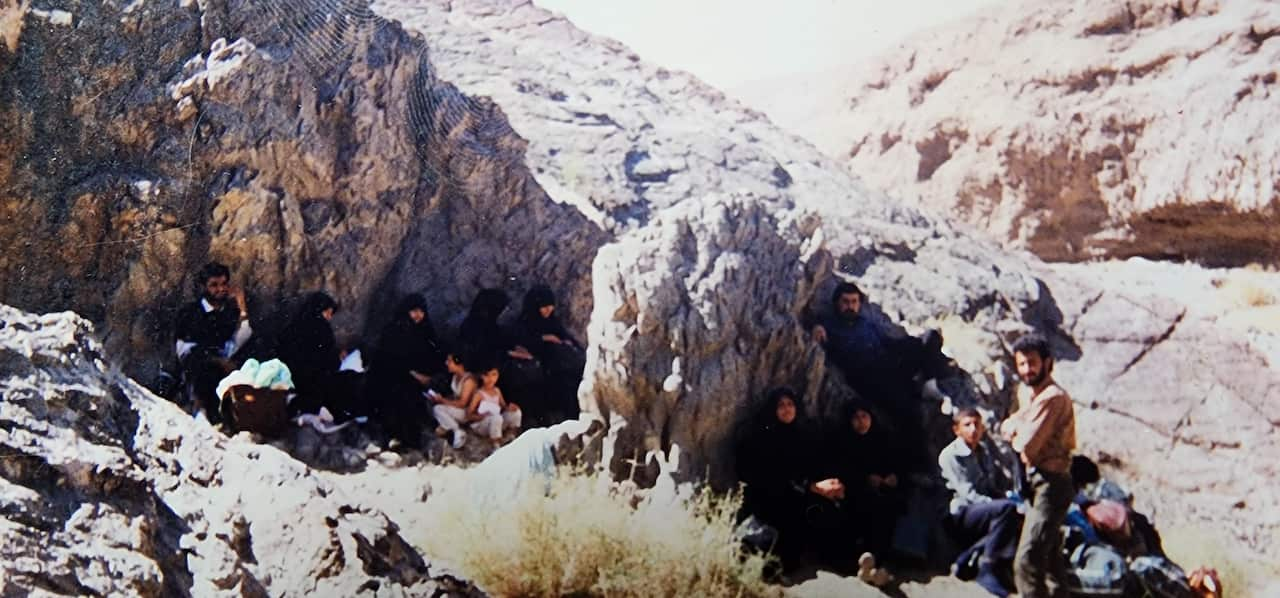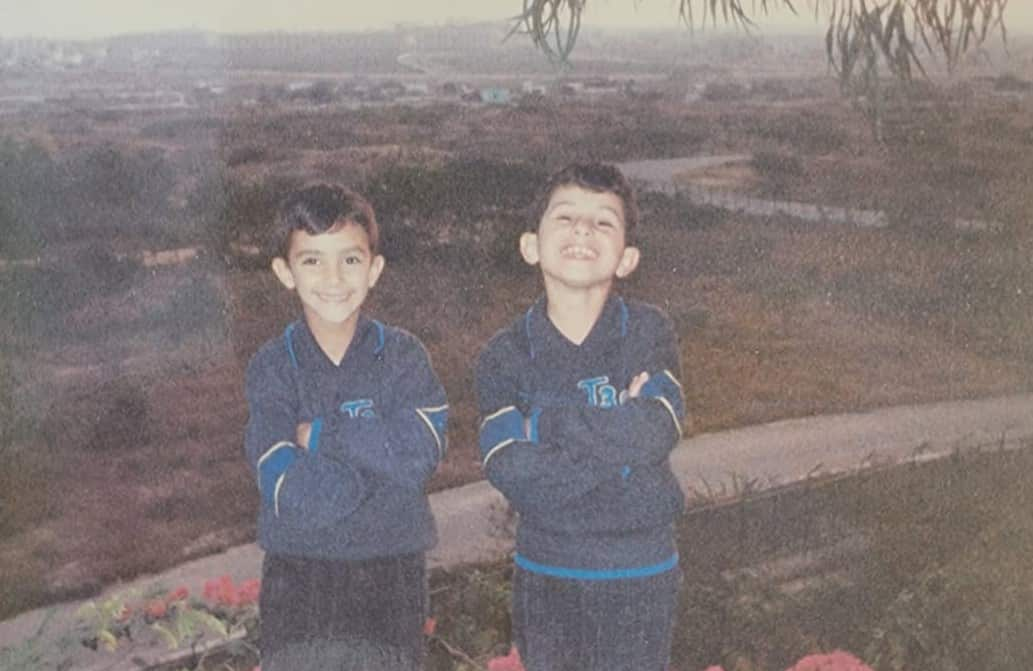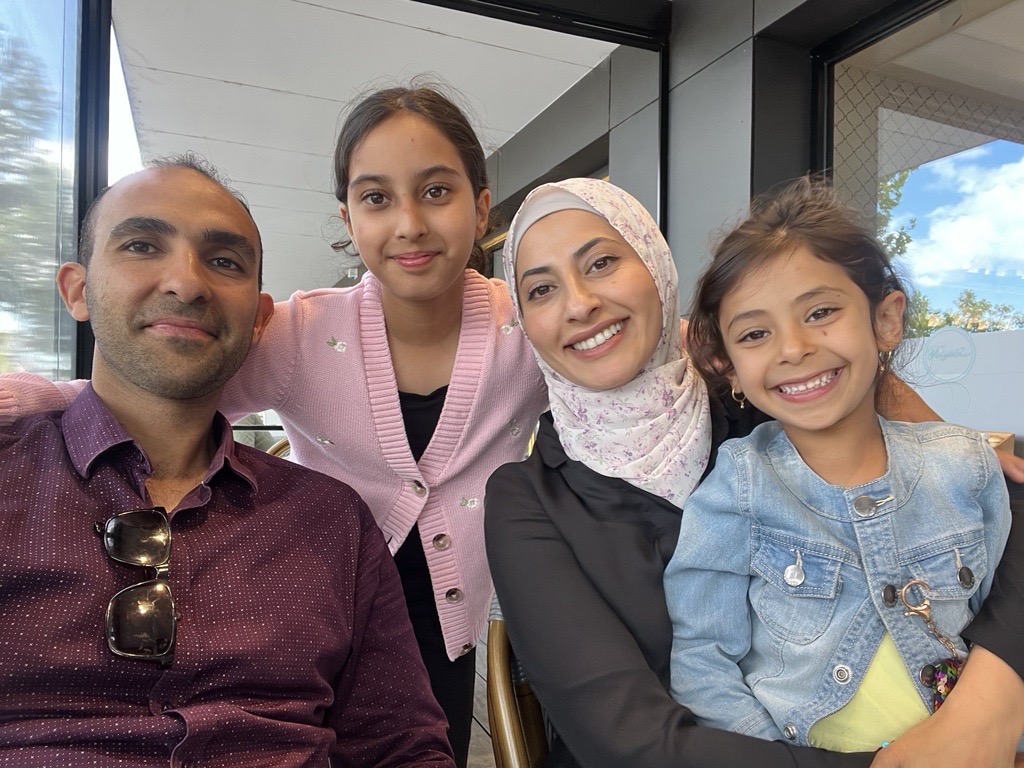Key Points
- Dr Mohammed Haskali is involved with pioneering research into new radioactive drugs — radiopharmaceuticals — for clinical use in targeting tumours for destruction.
- He survived a perilous journey fleeing his homeland including being imprisoned in Pakistan.
- He credits his grandfather for inspiring him to achieve study and career success.
Dr Mohammad Haskali was born to an Iraqi family in 1985, spending the first three years of his life in Iran, but said his first memories as a child were of a prison in Pakistan.
Three decades later, he is one of Australia’s leading cancer researchers, with more than on new ways radioactive chemical elements can be used to target and treat tumours.
His life in Australia is a far cry from his beginnings.
“My family (of 11 people including my grandparents, mother, aunts and uncles) were forced to leave Iraq during its war with Iran (1980-1988) because of political differences with the regime,” he said.
“We moved to Iran and then to Pakistan, which we entered illegally so we ended up in prison. I was four years old at the time.”
Dr Haskali and his family members while crossing into Pakistan from Iran on foot in 1989.
Despite the harshness of those early years, Dr Haskali said he and his family “never stopped dreaming” about one day moving to the West.
“The time passed year after year and we always said ‘this is the year we’re going to migrate’,” he said.
Dr Haskali said he and his family were released from prison after three months with the assistance of the United Nations and refugee support groups.
“We kept trying to migrate to a European country but we didn’t succeed in doing so. But I (didn’t) lose my ability to dream and imagine. I used to live in fiction a lot and always imagined myself as a scientist or a clergyman,” he said.
Six-year-old Dr Haskali (left) with his uncle, Zain, while waiting to emigrate in Quetta, Pakistan.
“After 10 years in Pakistan, a re-settlement program facilitated our journey and provided the resources needed to reach Australia safely,” he said.
“We arrived in Australia in mid-1999, and I began my high school education there in Year 8.”
‘We thought Australia was just farms’
Australia was an unknown destination for the family, Dr Haskali was 14 when they arrived in 1999.
“We didn’t know much about Australia. We thought it was just farms,” he said.
After high school, he completed bachelor’s and honour’s degrees at La Trobe and Victoria universities before springboarding to the University of Melbourne and graduating with a PhD in radiopharmacology in 2013.
Dr Haskali said of all the opportunities in his life, working in the United States had been one of the best.
Dr Mohammed Haskali with his family.
“I worked in one of the largest laboratories (the National Institute of Mental Health in Maryland) in the world for two years and published research papers in the best scientific journals,” he said.
“That opened many doors for me when I returned here to Australia.”
His current work focuses on cancer research at the Peter MacCallum Cancer Centre, Australia’s only hospital fully dedicated to cancer treatment and research.
“I lead the development and production of specialised radioactive drugs used for diagnosing and treating cancer,” he said.
“This role combines expertise in chemistry, radiopharmacy, and cancer research to help improve patient care through innovative diagnostic and therapeutic approaches in nuclear medicine.
“(My work opens up) the possibility of earlier detection and therapeutic treatment of Alzheimer’s disease by injecting radioactive materials into the brain wall.”
Dr Haskali is a “leader in this field nationally and internationally” and a “wonderful colleague”, according to Professor Ricky Johnstone, who is the centre’s Executive Director of Cancer Research.
“Since joining ‘Peter Mac’ in 2016, Dr Haskali has underpinned our nuclear medicine service by overseeing the production of critical radiopharmaceuticals used to both treat and image cancers,” Prof Johnstone said.
“These radiopharmaceuticals are extending lives and improving quality of life for people with advanced prostate cancer, and neuroendocrine tumours, in particular.
“Recently promoted as our inaugural (first) Chief Radiopharmaceutical Scientist, Dr Haskali also leads research into the next generation of radioactive tracers and drugs, working to fulfil the promise of these precision treatments being applied to a wider array of cancers.”
Grandfather was biggest supporter
Dr Haskali said his main supporter in life had been his late grandfather, Essa Alobaidi, who passed away from cancer three years ago.
“He was incredibly gentle, supportive, and actively involved in my education,” he said.
“I never anticipated being where I am today.”
He said he drew inspiration from 13th-century Muslim mystic Rumi who said “What you seek is seeking you” and Paulo Coelho in the novel The Alchemist: “And when you want something, all the universe conspires in helping you to achieve it.”
He said he was a hard worker, waking every morning at 4am-5am to work and study.
“I have found that those early hours are my most productive, allowing for intense focus. This dedication enabled me to complete two bachelor’s degrees simultaneously between 2005 and 2008,” he said.
‘A beautiful experience’
Dr Haskali has visited Iraq once in 2014 for 10 days and while he described it as a “beautiful experience”, he said it had made him realise that it would be difficult to live there again.
“The advantage here in Australia is that opportunities are available to exercise personal freedom in terms of expressing unconventional ideas,” he said.
“Most people live (according to) the same template and it is difficult for a person to think freely in that environment.”
He said it was difficult to formulate a “clear definition of identity” as a migrant.
“In fact, a person interacts with the society in which he lives,” he said.
“Part of me is Australian, part of me is Iraqi, part of me rejects the Iraqi style and part of me rejects the Australian style.”
Complete the interview through our and latest Australian stories and news.


